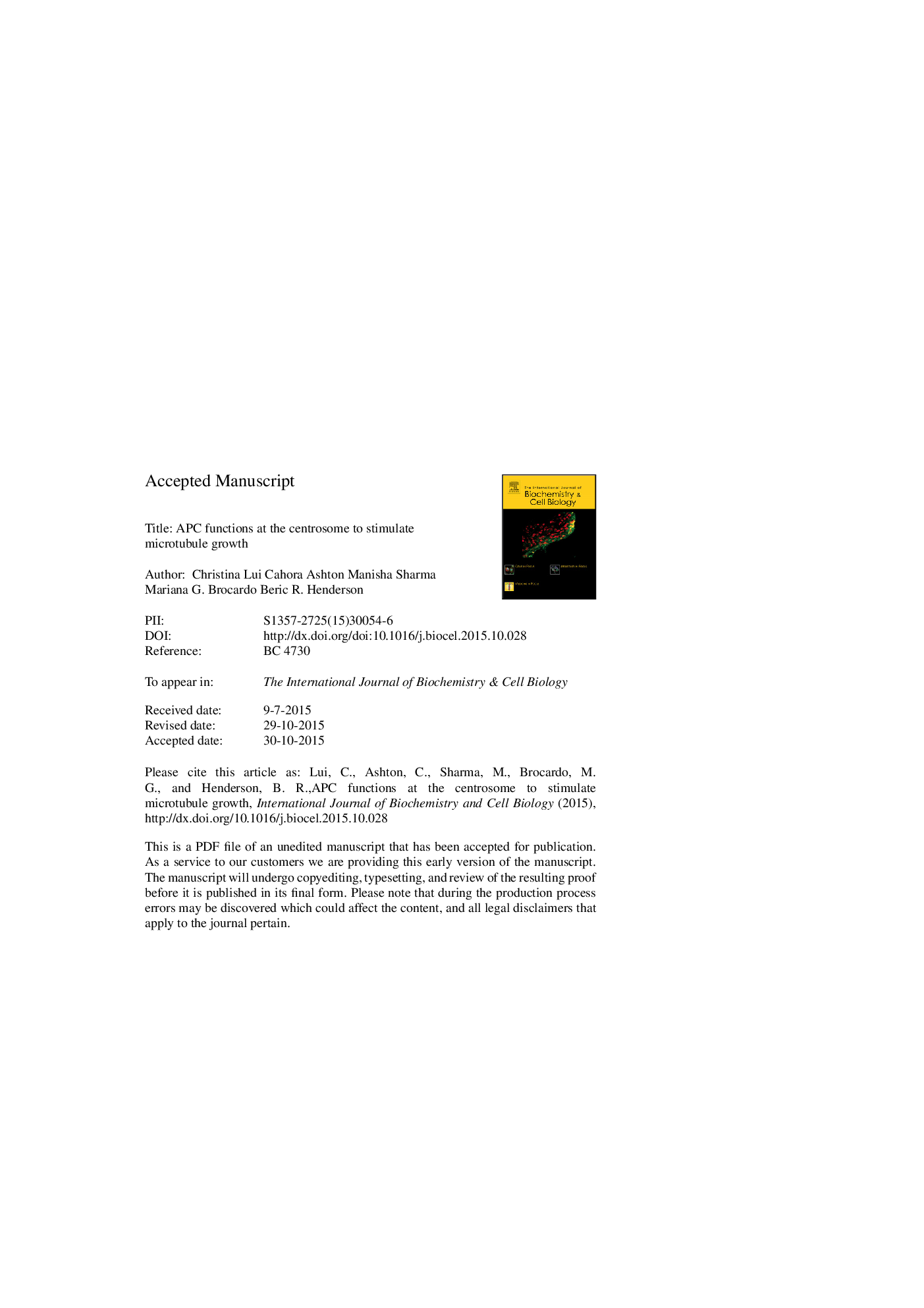| Article ID | Journal | Published Year | Pages | File Type |
|---|---|---|---|---|
| 8322388 | The International Journal of Biochemistry & Cell Biology | 2016 | 23 Pages |
Abstract
The adenomatous polyposis coli (APC) tumor suppressor is multi-functional. APC is known to localize at the centrosome, and in mitotic cells contributes to formation of the mitotic spindle. To test whether APC contributes to nascent microtubule (MT) growth at interphase centrosomes, we employed MT regrowth assays in U2OS cells to measure MT assembly before and after nocodazole treatment and release. We showed that siRNA knockdown of full-length APC delayed both initial MT aster formation and MT elongation/regrowth. In contrast, APC-mutant SW480 cancer cells displayed a defect in MT regrowth that was unaffected by APC knockdown, but which was rescued by reconstitution of full-length APC. Our findings identify APC as a positive regulator of centrosome MT initial assembly and suggest that this process is disrupted by cancer mutations. We confirmed that full-length APC associates with the MT-nucleation factor γ-tubulin, and found that the APC cancer-truncated form (1-1309) also bound to γ-tubulin through APC amino acids 1-453. While binding to γ-tubulin may help target APC to the site of MT nucleation complexes, additional C-terminal sequences of APC are required to stimulate and stabilize MT growth.
Keywords
Related Topics
Life Sciences
Biochemistry, Genetics and Molecular Biology
Biochemistry
Authors
Christina Lui, Cahora Ashton, Manisha Sharma, Mariana G. Brocardo, Beric R. Henderson,
